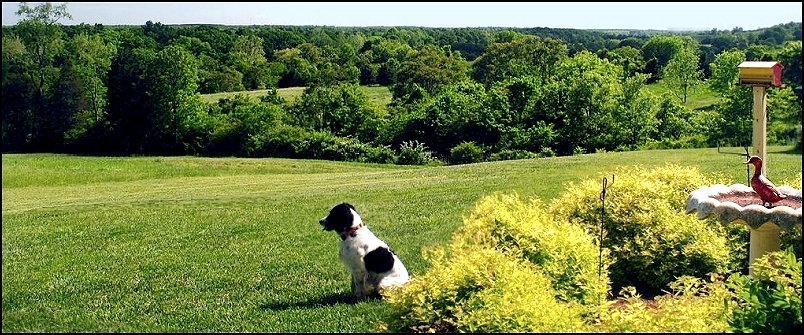Like Charlottesville Virginia, each state and each region has its own customs and laws regarding property home inspections for potential buyers. It sounds like a simple topic. It’s not.
Importance of Home Inspection in Written Contract
In Virginia the flow and the mechanics of conducting a property inspection or a home inspection in the Charlottesville area are governed by the written language in the Inspection Addendum of the Contract to Purchase. For any contract to be enforceable in the state of Virginia, it must be in writing. That Inspection addendum is signed by all parties as part of ratifying (our term for ‘completing’) the agreement to purchase. The Inspection becomes a contingency of the contract, meaning that the completion of the contract is dependent upon completing the performance and terms specified in the inspection addendum as well. If this is becoming technical or confusing, we apologize…. this is always best explained by an attorney in Virginia who specializes is real estate, but we’ll do our best to make it understandable.
 There are many types of home and property inspections so we’ll deal with two of the main ones in our Charlottesville VA area which are (1) Residential Home/property Inspections and (2) Study Period Inspections (typically for large acreage farm or estate properties). If the buyer is purchasing a large estate or a farm with acreage, that’s when we recommend a Study Period for their inspections, and we’ll talk about that after we finish the standard Home Inspection section of this page.
There are many types of home and property inspections so we’ll deal with two of the main ones in our Charlottesville VA area which are (1) Residential Home/property Inspections and (2) Study Period Inspections (typically for large acreage farm or estate properties). If the buyer is purchasing a large estate or a farm with acreage, that’s when we recommend a Study Period for their inspections, and we’ll talk about that after we finish the standard Home Inspection section of this page.
Residential Home Inspections
Both buyer and seller can negotiate to agree on the terms of any inspection. Some sellers will not permit any inspections (not always to hide defects… sometimes the owner is quite ill or there are other reasons why an inspection would be a hardship). Some sellers specify that inspections may be conducted only for ‘informational purposes’, in which case the contract will also clarify whether the buyer must proceed to a closing regardless of the results, or whether the buyer has the right to end the process for a purchase based on the inspection findings.
What Does “As Is” Mean?
Many listings are offered “AS IS” and either of the above scenarios could apply to those terms. When a home is offered ‘AS IS”, it does not necessarily mean that there is anything wrong that an inspection would find. Instead it might mean that the seller expects the buyer to conduct inspections but the seller has no intention of negotiating to correct any deficiencies that might have been discovered as a result of the buyer’s inspection process.
Buyer Beware in Virginia Home Purchase
During the inspection it’s also the time to sort out the marketing from the truth. Virginia real estate law is a version of ‘buyer beware’ and it’s the responsibility of a buyer to verify any claims made by the seller in a listing or otherwise. Marketing exaggerations should be tested. Years ago I discovered the following discrepancy regarding what a Florida listing actually claimed: a “ski-able lake” is not a 30-foot pond with an alligator in it. really.
In case you’re wondering, in the event that we are representing a buyer of Charlottesville real estate, we recommend that our buyers hire professional certified inspectors to conduct the home inspection, even if their Cousin Louie knows a lot about construction and has offered to do it for the buyer for free. Professional inspectors provide photographic evidence of the details of their inspection, they provide summaries of anything they consider to be sub-standard, they offer remedies to correct the issues, and they provide a full report of their findings. Depending upon several factors, a home inspector may or may not be able to provide cost estimates to correct any problems.
Tell Me What To Expect With a Home Inspection
When a home inspection is scheduled, sellers in our area typically have agreed to leave the home so that the inspector and the buyers can have time together to critique the property findings and to discuss any issues freely away from the sellers. Depending upon how large or how complicated a home may be, an inspection can last anywhere from a couple of hours to four or five hours or more. We strongly recommend that, if possible, the buyers should attend their own home inspection. There are several reasons we recommend it.
Should You Attend Your Home Inspection?
First of all, when a buyer is present during the home inspection, he/she has the right to ask questions about the inspection procedure. In the process of reviewing each inspected area of the home, a buyer is able to get additional advice about each system in the home as well. Think of it as a “How To Use Your New Home” class. It is immensely informative for most buyers to see how the inspection is conducted. Following is a typical scenario (the process varies from inspector to inspector):
Describe What The Home Inspector Does
An inspector might begin with one area of the home such as the electrical breaker box. It will be checked (usually with a flashlight) to assure that the connections are properly installed and that the materials (wires etc) are in good condition and that they meet the current building codes in that area. Some older homes do not come up to modern code standards but as long as their installations match the optimum standard for the date when they were installed and the materials are in good condition, they are usually passable. Any defects will be photographed and noted for the summary report.
As you move around the home with the inspector to the various locations, details that are not obvious will be pointed out to you. Over the years we’ve seen many of them, but they might be things such as: how to operate the flue of your chimney; when the roof might require new shingles or the flashing is exposed; washer, dryer, and dishwasher may be tested to assure functionality; gutters and eaves checked for drainage; ceilings inspected for any signs of water damage, previous or current; walls and floors inspected for any signs of rodent or insect infestation; railing and stairs tested for sturdiness or damage; and windows and doors are examined for air leaks or cracks.
Water in Basement or Crawl Space
 And then there’s the basement or crawl space. If the home has any space underground, the inspector will pay close attention to the basement or crawl space…. even if the basement is finished and furnished. Any sign of dampness or mold is a cause for notation. The possible points for drainage problems are also checked around the exterior of the home (even if there is no sign of dampness inside)…. and details such as the slope of adjacent ground or rainwater drainage will be noted. Drippy exterior faucets are inspected. If any water damage has affected the structural integrity of the exterior steps into the home, they may be suggested for repair. Even sidewalk cracks or irregularities can be noted.
And then there’s the basement or crawl space. If the home has any space underground, the inspector will pay close attention to the basement or crawl space…. even if the basement is finished and furnished. Any sign of dampness or mold is a cause for notation. The possible points for drainage problems are also checked around the exterior of the home (even if there is no sign of dampness inside)…. and details such as the slope of adjacent ground or rainwater drainage will be noted. Drippy exterior faucets are inspected. If any water damage has affected the structural integrity of the exterior steps into the home, they may be suggested for repair. Even sidewalk cracks or irregularities can be noted.
3 Rules of Water
One of the inspectors who worked in our Charlottesville area of Central Virginia for many years had a standard quote that he repeated to each person during an inspection.
He would get to the part about lower level mold or water damage and he’d offer what he called his ** 3 Most Valuable Inspection Lessons **.
- Lesson Number 1: Keep the water away from the house.
- Lesson Number 2: Keep the water away from the house.
- Lesson Number 3: Keep the water away from the house.
As he moved about the property during his inspections, he repeated this mantra so often that it almost became a game. Soon the prospective buyers would chime in too, repeating the phrases in unison with him.
This inspector also routinely corrected people for mentioning the “hot water heater”. He pointed out that it’s accurately just a “water heater” and there is no other alternative or ‘hot’ description needed.
A Realtor’s Usual Role in your Charlottesville Home Inspection
Let me digress for a moment to discuss your realtor’s role in your home inspection. For us, because our clients are typically newcomers to the area or are unfamiliar with the inspectors locally, we might provide our buyers with a short list of two or three inspectors whom we know will be appropriate and experienced for their specific type of property. As said before, we encourage buyers to attend their own inspection if at all possible. Each realtor handles his/her own role during the inspection differently (often regardless of the realtor’s own particular training or expertise).
Let me explain. Even if a realtor is also (extreme example) a certified licensed home inspector too, that realtor will likely choose not to participate in any part of the home inspection so that his/her role as a realtor does not become blurred. Here’s a worst case scenario of how that could happen: your inspector fails to find a major defect somewhere in your new home and you become aware of it shortly after the inspection…. what would you do? Fire your inspector/realtor (the realtor person who’s legally bound to advocate on your behalf)? Demand a second opinion? And if the seller has offered to pay for the buyer’s realtor commission as is most common in our area, how would the fee to conduct an inspection be handled with that realtor? Answer is: it can’t work well.
As a result, some realtors will opt to walk through the inspection along with you but they will remain silent and allow you and your inspector to have exclusive dialogue together. They won’t offer you any inspection advice during or after the inspection. We often encourage our clients to take their own notes so that those notes can be compared to results in the inspector’s summary report at the end. Other realtors may sit on the porch while the inspection is going on, or they might linger nearby in a car to be ready if you should need to talk to them … but they remove themselves from any firsthand knowledge of your discussion with your inspector… so that there can be no misunderstanding that their role is as your realtor and not as any kind of inspector. Even if they may have knowledge about construction and inspections, your time with a licensed inspector that you’ve hired, is when many realtors choose not to be involved, for the good of both of you.
My Realtor Role At Your Home Inspection
The way I typically attend a home inspection is a bit more hands-on. I do walk around the inspection with the client and inspector or ask the inspector to call me if he discovers something of significance. I want to make sure that I thoroughly understand the inspector’s concerns since I will be the person writing up the deficiency list and will be discussing it with the listing agent. Also I am a second pair of ears for the client and sometimes ask questions requesting further clarification from the inspector if I feel that the client is not “getting it”. Sometimes at the end of the inspection the clients are feeling overwhelmed by all of the little details and I may ask the inspector to outline the areas that he finds to be of most concern. Also often when we have looked at the home initially the buyer and I may have identified areas of concern to us and we will want to make sure to ask the inspector’s opinion on those areas. So I am a more active participant in the process on behalf of my clients than some other realtors may choose to be.
What About Inspecting Outbuildings and Other Structures?
In our Charlottesville area many properties also have outbuildings (they’re also called ‘dependency’ buildings here). Maybe it’s a carriage house or a garage apartment or a fancy stable. Regardless, there are reasons why buyers may wish to investigate the details of buildings other than the main home. We specify their right to do this when we draft the inspection contingency agreement that will be made with the seller, so that there are no misunderstandings later on. It can be in this type of an inspection that much time becomes required to complete all of the inspection details.
So next let’s talk about what’s going on with the buyer and seller at this point in the inspection process. The inspection is now complete, the inspector has submitted his report of his findings, and the buyers and sellers each will likely have decisions to make.
Buyer Attitude vs. Seller Attitude
 A TYPICAL SELLER: they may have already reduced their optimum asking price in order to get a contract. They worked very hard to get the property in good repair for the inspection. They may or may not be a bit miffed that they won’t be permitted to monitor the buyer’s inspection while it’s being conducted, and they’re usually not in the mood to get bad news. They are very eager to hear the results of the inspection so that they can get over the hurdle of the inspection and get on with packing for their next home.
A TYPICAL SELLER: they may have already reduced their optimum asking price in order to get a contract. They worked very hard to get the property in good repair for the inspection. They may or may not be a bit miffed that they won’t be permitted to monitor the buyer’s inspection while it’s being conducted, and they’re usually not in the mood to get bad news. They are very eager to hear the results of the inspection so that they can get over the hurdle of the inspection and get on with packing for their next home.
 A TYPICAL BUYER: they just spent hundreds of dollars to find any problems with their new property and they hope there will be no problems at all. Surprise. In my years in real estate I have never personally encountered an inspection that did not find some kind of flaws for the final report. You pay someone to look for it… they’ll find it. So now the buyer gets back a list of a few… or dozens… of recommended repairs or deficiencies. And their perfect shining new purchase is looking a little tarnished, not quite the maintenance-free mecca they’d envisioned. And they are disappointed and they want someone to make it right. It’s time for the realtors to smooth the edges and make sure everybody allows their heads to rule their emotions.
A TYPICAL BUYER: they just spent hundreds of dollars to find any problems with their new property and they hope there will be no problems at all. Surprise. In my years in real estate I have never personally encountered an inspection that did not find some kind of flaws for the final report. You pay someone to look for it… they’ll find it. So now the buyer gets back a list of a few… or dozens… of recommended repairs or deficiencies. And their perfect shining new purchase is looking a little tarnished, not quite the maintenance-free mecca they’d envisioned. And they are disappointed and they want someone to make it right. It’s time for the realtors to smooth the edges and make sure everybody allows their heads to rule their emotions.
What Is A Deficiency List?
Negotiations now begin regarding the Deficiency List. If a deficiency is stated in the inspection report as ‘needing repair’, the buyers may have a right to request that the sellers fix it. (“as-is” or other terms may change this scenario). The sellers don’t need to agree to fix anything, but if they agree to repair 100% of the repairs that the buyer requests… everyone is on their way to a closing. The buyers will be able to schedule a walk-through of the property near the time of closing/settlement to verify that the property is in the condition that everyone agreed.
Home Repairs vs Money at Settlement
But the seller might not be so agreeable to addressing all of the repairs that the buyer requested. If the buyer asks for 5 repairs and the seller agrees to do only 3 repairs, a new negotiation will begin, in order to arrive at agreement. The way most local contracts are written, if the buyer and seller cannot agree on repairs to deficiencies, the buyer might have the right to walk away from the purchase. But that buyer will still have invested some amount of money, time, and effort to conduct a home inspection, and the seller may have already purchased their next home and may be ready to go… so there is motivation on both sides to come to an agreement. Sometimes buyer and seller will agree to exchange a monetary amount that will make the inspection repairs a moot issue…. this money exchange is usually conducted as an adjustment of money paid/due at the time of settlement.
Virginia Procedures for Home Inspections May Vary Locally
The entire process that I’ve described above is very typical for homes in Charlottesville Virginia and surrounding areas. It may not be the case in nearby towns like Richmond or Roanoke, where purchasers might use different Home Inspection Contingency agreements in their contracts. But the important elements are in all of the contingency forms… and those elements are basically to protect the rights of both buyer and seller during any inspection period.
What’s The Difference Between a Home Inspection and a Study Period?
I promised to speak a bit about another type of property inspection which we refer to as a Study Period in our contracts. A Study Period becomes pertinent or necessary during the purchase of properties or farms that have large acreage or complicated geographical features… and it can also apply to commercial real estate purchases where feasibility studies may need to be conducted prior to settlement, but for now we’ll just talk about residential real estate here.
What Does Due Diligence Mean?
 Both the residential Home Inspection and the Study Period are part of the buying process that we refer to as “due diligence”. Again, it’s important to remember that it’s up to the buyer of real estate in Virginia to verify any claims or statements made by the seller. Buyer beware. This is important. Not all states operate with this legal premise, and often our most experienced real estate purchasers are the ones who’re least able to wrap their minds around this part of our laws. In other states, a seller may not be able to even put his property on the market without providing a guaranteed clear title, but in Virginia a buyer needs to examine and verify all details of the property without relying on information provided by a seller. This period of inspection and verification is what we call “due diligence”. The buyer must perform (often, invest) in research to make sure that the property is able to be sold as it’s claimed, and this may benefit not only the purchaser’s current transaction but also his ability to market this property in the future after his purchase is complete.
Both the residential Home Inspection and the Study Period are part of the buying process that we refer to as “due diligence”. Again, it’s important to remember that it’s up to the buyer of real estate in Virginia to verify any claims or statements made by the seller. Buyer beware. This is important. Not all states operate with this legal premise, and often our most experienced real estate purchasers are the ones who’re least able to wrap their minds around this part of our laws. In other states, a seller may not be able to even put his property on the market without providing a guaranteed clear title, but in Virginia a buyer needs to examine and verify all details of the property without relying on information provided by a seller. This period of inspection and verification is what we call “due diligence”. The buyer must perform (often, invest) in research to make sure that the property is able to be sold as it’s claimed, and this may benefit not only the purchaser’s current transaction but also his ability to market this property in the future after his purchase is complete.
How Does A Study Period Work?
So a Study Period allows for extended days or weeks for the buyer to examine the property closely firsthand and to perform the buyer’s Due Diligence prior to completing the purchase settlement. Each property may require specific areas of inspection. During the due diligence period is when the buyer might hire a home inspector to conduct the inspections as we described earlier. But the buyer might also want to conduct other studies to verify that the property is suitable for the buyer’s intended uses. Often a surveyor is hired to verify the boundaries of the property (is that wonderful oak tree really going to be on your own land?).

What’s a Phase One Environmental Study?
There’s a study standard called a Phase One Environmental study that encompasses a host of examinations of the land components, and we often recommend a Phase One inspector to our purchasers of large acreage. During that study, water and soil and geographical elements are studied closely. Is the soil suitable for your own farming purposes? What did previous owners put into the soil for their own farms? Is there runoff into water resources? Are there any underground buried tanks or spills? Is it permissible to construct a new pond or clear trees? Are there any zoning restrictions that would prohibit the intended use of the property? What is the condition of the outbuildings or fencing or pens? Are there subdivision restrictions or deed restrictions? If the buyer intends to re-route any access paths, the Study Period is when the buyer must confirm that access will be permitted in those locations and permitted to be constructed in the manner that the buyer intends to do. Is it possible to subdivide the property in the future and if so, when and how? Sometimes there are extraneous benefits discovered during the Study Period… mineral rights or water rights previously unknown, for example.
Can Study Period Deficiencies Be Negotiated?
If issues are discovered during the Study Period, the Offer to Purchase may have been written in a fashion that allows the buyer to walk away from the purchase of that property if those issues are deemed unsatisfactory. With large farms and estates there is great incentive for both parties to make the purchase happen, however. For one thing, there are fewer prospective buyers who are able to consider a purchase for expensive or large estates and farms. The seller’s pool of prospects is smaller. But also the buyer’s pool of available properties is smaller too. Once again, both parties have incentive to make concessions that will facilitate a sale. Yet in the case of the buyer of large acreage or farms or estates, there are some features that will render it impossible for the buyer to proceed because the property simply cannot support the buyer’s intended use. One example of that would be something like a vineyard, where very precise elevations and wind and sun angles and drainage features are necessary for growing grapes…. no compromise will work if those details are wrong.
So the Study Period allows a buyer the luxury of examining the details of the property as they pertain to the buyer’s intended uses, and in this way it overlaps with the examination of commercial properties for highest and best use.
Please Contact Me – I’d Love To Assist You
Although I can recommend a good agent for you if you’re considering commercial properties around Charlottesville, my own expertise and experience is in the residential areas of farms, estates, acreage, residential, and historic properties – – so please give me a call with any questions or referrals? I know that the topic of inspections is full of important details and decisions not even covered here and I’d love to discuss those with you about your own home purchase…. as always, no obligation.

 Pam Dent
Pam Dent
Leave a Reply